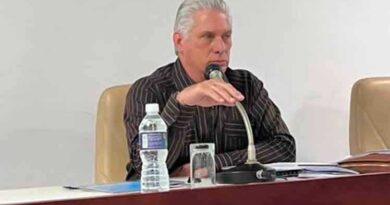Cuba denounces negative effect of unilateral coercive measures

Such resources are vital for guaranteeing the peoples’ rights to life and health, she stressed.
The Ambassador explained that unilateral coercive measures violate international law and the UN Charter, and are also against human rights such as the right to food, which is especially relevant in the current global context.
Furthermore, she noted that such coercive mechanisms hamper and hinder the capacity of the multilateral agency system to support the effective implementation of the United Nations Sustainable Development Cooperation Framework and the work of the UN Country Team on the ground.
The Covid-19 pandemic enhances the importance of a repositioned United Nations development system that can better support developing territories and promote the goals of Agenda 2030, with full respect for sovereignty, independence, ownership and national leadership, the Cuban diplomat said.
The immediate and longer-term effects of the Covid-19 pandemic will reverse many of the hard-won development gains of the past decades, she said in Ecosoc virtual meeting the day before.
For more than 60 years, the United States has maintained a blockade against Cuba that is far from being relaxed; it is intensifying at this time of global health crisis and has prevented the arrival on the island of the equipment and medicines necessary to put an end to Covid-19, as Havana government recently denounced. (Prensa Latina)



